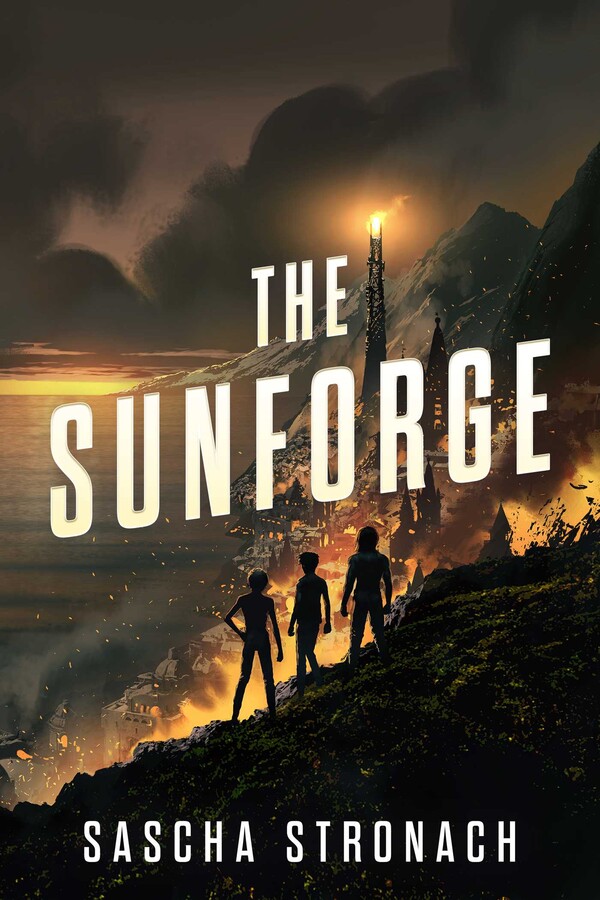I’ve mostly avoided the Birds of Prey discourse, because it seems like a magnet for the sort of exhausting dude with Comics Opinions who my life is blessedly free of these days. I also haven’t read the source material, so line up to shout about that if you wanna. I am going in mostly blind, but I got back from Birds of Prey and I think it’s a great illustration of two storytelling principles that the internet (and the CinemaSins nitpick crowd in particular) critically fails to understand.
External consistency is when a text aligns with our real world. Almost every text has some: we see a baseball bat and we know that it hurts to get hit with, regardless of whether the world of the text has set it up. We see Harley ordering a bacon and egg breakfast sandwich and the camera lingers on the bacon and we know shit, bacon sure does smell good after a rough night. The bacon in the world of Birds of Prey could taste like rotten fish, but unless otherwise stated—because, by default, we assume a text to be externally consistent—we treat it as tasting like bacon.
Internal consistency is when a text aligns with itself. Dragons don’t exist, but when one shows up in Game of Thrones you don’t complain about it being unrealistic because it’s an established and expected deviance from the real world. If a dragon showed up in Pride and Prejudice, you might have issues, because Pride and Prejudice hasn’t established itself as a text where that sort of thing happens.
Failure to understand these terms was rife in the discourse around the later seasons of Game of Thrones: “why do you care that they can teleport from one end of the country to another, there’s an ice zombie horde!” Because an ice zombie horde is internally consistent with the setting, but we’ve been given no reason for dudes moving so fast it’s basically teleportation. Worse, earlier seasons worked hard to establish that those sort of movements took a huge amount of time and effort, so the sudden jump runs directly against the established facts of the setting.
Lack of understanding here also leads to people shouting about plot holes where no plot hole exists. It’s an approach to film where everything must adhere strictly to the rules of our own world or otherwise it’s considered defective.
Which brings us back to Birds of Prey. Which I loved. It’s gorgeous, it’s well-acted, it’s funny as hell, it’s easily the most enjoyable a DC movie has been in years. It’s not perfect (a few weird continuity errors stuck in my craw) but I had a great time with it and I’ll definitely be giving it a rewatch when it shows up on streaming. Very early on in Birds of Prey, they establish a rule: gravity is about 70% earth normal. This is never stated, but people jump higher, people seem less tethered to the ground, when somebody gets hit they go flying in a really satisfyingly kinetic way. It would be very easy to CinemaSins that, and do it constantly: *DING* GRAVITY DOES NOT WORK THAT WAY *DING*. But that’s the secret, in here, it does. And it does consistently. Everybody who goes flying in Birds of Prey (and a lot of people go flying) does so with the same regard for the world’s internally consistent gravity.
Birds of Prey also establishes early that people are tougher than in the real world, and can take hits that would absolutely kill a normal person. This is par for the course in superhero movies, but it’s really obvious here—a lot of heads slam into walls or floors at a velocity that would shatter skulls and spines, and they’re totally fine and get up and keep fighting.
The world of Birds of Prey is vaguely ridiculous and hyperreal—a man tries to kill Harley with a giant rubber-band ball filled with fireworks, there’s an extended fight on trampolines, a teenage girl swallows a huge diamond without coughing up blood and dying. At one point, Harley puts a lighter under a dude’s beard and his whole head instantly catches fire. As a bearded dude who used to chain smoke, I can confirm: if beards worked that way, I’d have been fucking dead years ago. But it doesn’t feel unreal, because all of the other shit. If Harley’s assassin is going to try to kill her a giant rubber band ball in a slingshot on the back of his pickup, then sure, a dude’s beard can go up in flames like it’s soaked in kerosene. I can’t believe either of those things, but I can believe both of them, because together they start to create an internal consistency.
When Wile E Coyote gets an anvil dropped on his head and then springs up and plays concertina music, you don’t stand up and say “that wouldn’t happen! That coyote is surely dead! And where would a road runner get access to an anvil anyway? He cannot fill out the proper paperwork!” because the world of Wile E Coyote and Roadrunner establishes clear rules about where it breaks from reality and those are some of them. Keep in mind, Wile E Coyote and Road Runner remains externally consistent in a lot of regards: if you see a cactus, you know it’s pointy; if you see an anvil, you know it’s heavy; if you see dynamite, you know it goes boom. It wouldn’t work without these references to the real world. As ridiculous as it sounds, it’s realistic in a lot of regards and it wouldn’t work if it wasn’t—there would be no tension or point to watching Wile E Coyote eat a hot dog with a stick of dynamite in it if we didn’t know what dynamite did. It is not entirely unreal, it just has multiple structured breaks from reality, which are applied consistently within the text.
Imagine if Birds of Prey were shot and edited like Man of Steel. Lots of grey, everything hyperrealistic-but-with-superheroes, all 9/11 symbolism and serious men gurning at the camera. Imagine if BoP were that movie, and then Harley held a lighter up to a dude’s beard and his whole fucking head instantly caught fire. That would be terrible, because it’s not internally consistent, but in Birds of Prey it lands because Harley’s world is just like that, and is like that consistently.
Wonder Woman had an interesting version of this problem, and I think it’s because it happened during the Grim and Gritty DCEU era but it wasn’t that sort of movie at its heart. In the church scene in Wonder Woman, gravity works a lot like it does in Birds of Prey, but it comes out of nowhere and it feels like they’re hurling action figures around. It’s weightless and toothless. It’s such a weird break in the rules that it knocked me right out of the movie. If the upcoming Wonder Woman 1984 does the exact same thing—based on what the marketing says about its tone and world—it’ll be much less of an issue, because WW84 exists in a hyperreal world, more in-line with Birds of Prey. Its aesthetic creates a set of expectations about its internal consistency—it’s more comic-y, it’s less serious, it’s a place where a kick can send a man flying through a brick wall like it’s made of styrofoam.
In the world of Birds of Prey, Harley can rampage through a police station with a bean bag gun/grenade launcher hybrid, disable dozens of officers, and somehow cause 0 casualties. A cop gets hit with a bean bag and the impact smashes him into a filing cabinet behind him; his head snaps back fast enough that it almost certainly broke his neck. He is fine, and it’s not a problem for the movie that he’s fine, because everybody in this movie can take the same amount of damage before suffering serious injury, and that amount is a fuckload.
External consistency is passive. It’s the “unless otherwise stated”. We assume Harley’s bacon and egg sandwich tastes like that same sandwich from the real world, because nothing about the film indicates otherwise. We assume when she hits somebody with a baseball bat that it’s going to hurt them, rather than make them feel loved and comfortable. External consistency is a program running in the background that you never really notice, but it keeps everything from burning down.
Internal consistency is active. In film, it’s a product of the editing and the acting and the costume design and the script and every one of the million little things that come together to make a text. It’s a system of structured, intentional breaks from reality that let the story work like it needs to.
Our storytelling discourse is worse because we don’t understand this. We’ve created a conversation around texts where any break from reality is a PLOT HOLE. I am sympathetic towards Patrick Willems when he says SHUT UP ABOUT PLOT HOLES—I think part of the reason we got there is because people don’t understand internal consistency, and assume any instance of it is a plot hole, and therefore bad. If we follow through on that in our films—if we are terrified to make anything that isn’t internally consistent—what’s left?
Fucking mumblecore, that’s what.
Which has its place in the film landscape, but if we follow our path to its endpoint, it’s just all mumblecore all the time, and I can’t help but think that’s a film landscape that is more grey, less fun, less able to delight and surprise. Mumblecore’s a nice break if you’re feeling quiet and introspective, but if the PLOT HOLE shouters online get their way, it’s all we’ve got left and I can’t help but feel that’s not what any of them want.
tl;dr for the CinemaSins crowd: it doesn’t matter whether something isn’t realistic, so long as it’s unrealistic in a consistent manner. OR: shut up, that’s not a plot hole.
p.s . Mary Elizabeth Winstead needs more comedy roles because goddam that mirror scene had me in stitches. It’s like Dave Bautista’s turn as Drax smashed into Leslie Nielsen. She has such pure, sincere Comic Straight Man energy, but she also knows exactly what she’s doing and it’s wonderful. Please give that woman more work.
edit 06/04/20: this post has been incredibly popular and seems to resurface every few weeks when some big name RTs it so uh … I wrote a novel called The Dawnhounds, it came out last year, it’s probably going to win some awards. It’s about a disgraced ex-cop racing against time to stop a plague from tearing her city to pieces. Tamsyn Muir called it “a wonderful queer noir fever dream”. You can buy it (or read it free on Kindle Unlimited) by following this link here: https://www.amazon.com/dp/B07YSBKKGG.



